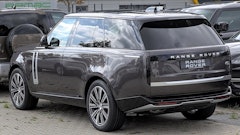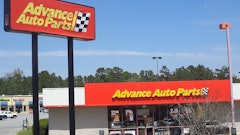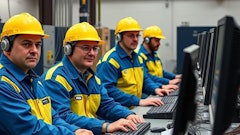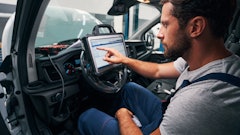
By Jeff Sanford
Toronto, Ontario — October 22, 2017 — In this week’s Autonomous Report, we look into Google’s big plans for transport in Toronto, the world’s first self-driving lawnmower, Mercedes Benz trusts truck platooning technology and much, much more!
– This could be really interesting. Eric Schmidt, Executive Chairman of Alphabet, the company that owns Google, travelled Toronto on Tuesday where he announced the new Google Sidewalk project. According to a report on Market Watch, “The world’s pre-eminent technology firm has been handed a chunk of undeveloped land in the city’s east end to use as a laboratory for emerging urban and automated vehicle technologies.”
There are some fascinating ideas being suggested for this new neighborhood, to be called Quayside. As the press release says, “The partnership offers technology experts and urban planners a blank canvas to create a blueprint for how cities of the future should be built, incorporating technology at every step of the way, according to a proposal submitted to the city by Sidewalk Labs.” The new neighborhood will be built with cutting edge ideas about transportation driving the design.
According to Google, “The biggest challenge to sustainable mobility in Toronto is finding ways for transit to compete with the private car in terms of convenience for daily trips–a struggle exacerbated by limited transit funding. In Quayside, Sidewalk plans to use both traditional transit and digital mobility tools to offer efficient alternatives to driving, all at lower cost than owning a car.”
Sidewalk’s approach begins by restricting conventional vehicles (nonemergency) from a large portion of the neigbourhood (after a transition zone). “But that is not enough,” according to Google. “For trips within Quayside, Sidewalk will provide a robust walking and biking infrastructure, including expansions of Bike Share Toronto … Sidewalk will also pilot a self-driving transit shuttle, a strategy identified in the Quayside Draft Vision Document.”
A managed parking pilot (being developed by Sidewalk’s portfolio company Flow) will direct cars to available parking, reducing the emissions and congestion caused by circling.
A mobility-as-a service platform will help users take advantage of all mobility options, and will facilitate an on-demand shared ride system.
The most far reaching idea being considered for this new neighborhood is an “urban freight transit system” that will be built under surface roadways and will allow AV delivery bots to move around the neighborhood underground.
– It’s finally here: The AV lawnmower. The Husqvarna Automower 315 is a new device that can automatically mow your lawn. As a report by the Financial Post puts it, “Think of it as a Roomba for your lawn. It meanders around the yard regardless of the weather, keeping the grass neatly trimmed.” To keep the device confined to a particular property, the local Husqvarna dealer will bury a wire around the periphery of the yard. High-end models can also use GPS co-ordinates for geo-fencing. The grass cutting bot also automatically parks itself to recharge.
– The Trump administration is promoting what it calls a “nonregulatory approach” to autonomous vehicles. The approach has attracted criticism and has increased worries about safety. “When we’re talking about vehicles … the size of a house going 70 miles per hour down our freeways. There’s a real concern that the technology isn’t ready yet to be released into the wild,” said Jason Levine of the nonprofit Center for Auto Safety in Washington, according to a report by the Star Tribune. Last month the U.S. Senate Commerce, Science and Transportation Committee debated whether semi-trucks should be included in the new rules. A representative of the International Brotherhood of Teamsters was said to remind the Senators about, “… the potential impact on the livelihoods and wages of millions of your constituents. [Jobs should be considered at] the outset of this discussion, not after the fact.”
– MIT’s Center for Real Estate released a report that discussed two possible outcomes for land values in the wake of the AV revolution. One scenario sees, “… reclaimed parking spaces fuel a downtown building boom.” As fleets of shared-use AVs replace singly-owned vehicles the number of parked cars will decline. This will free up development space within city borders. But according to the report autonomous vehicles will also encourage builders, “… to push deeper into the exurban fringe, confident that homebuyers will tolerate longer commutes now that they don’t have to drive …”
According to the report, “In the first scenario, cities become more like New York, with walkable streets and fleets of autonomous vehicles for public transit. In the second, they become more like Dallas or Phoenix, which already function as a collection of suburbs.”
A co-author of the paper was quoted as saying, “It’s a polarization… I see both things happening at once.” City finances will also be affected. One interesting stat in the report: “The 25 biggest US cities generated a combined $5 billion last year from parking tickets, vehicle registrations, and other related revenue …” Another potential challenge for governments is that local municipalities will have to, “… grapple with the likelihood that as the cost of the vehicles comes down, fleet companies may overburden roads with them.”
– Mercedes-Benz released a video of what the company is calling “Arocs trucks.” These industrial vehicles work without drivers, “… and without requiring a bevy of expensive sensors equipped on the truck itself.” Only the lead truck of the fleet is equipped with sensors. The others follow. You can see them in action in the player below.
– Nissan announced recently it will begin offering its ProPILOT Assist technology. The new AV-like tech will be available on the company’s bestseller, the Rogue compact SUV. ProPILOT Assist will also launch on the Nissan LEAF in early 2018. Nissan has plans to extend the technology to more models in the North America, Europe, Japan and China, with 10 models to be launched by 2020 by the Renault-Nissan-Mitsubishi Alliance. For now, ProPILOT Assist is available as an option on the 2018 Rogue SL grade as part of the Platinum Package, with an expected starting price of $36,998 when it hit dealers’ lots in early 2018.
According to Nissan, ProPILOT Assist is designed to be more intuitive and user-friendly compared to other driver-assist technologies. [The system] utilizes a forward-facing camera, forward-facing radar, sensors and electronic control module to help the driver stay in the center of the driving lane and to maintain vehicle speed (set by the driver) or help maintain a gap to the preceding vehicle if the vehicle speed drops below the driver-set speed. It also can slow the vehicle to a complete stop and holds the vehicle during traffic jam conditions.





















